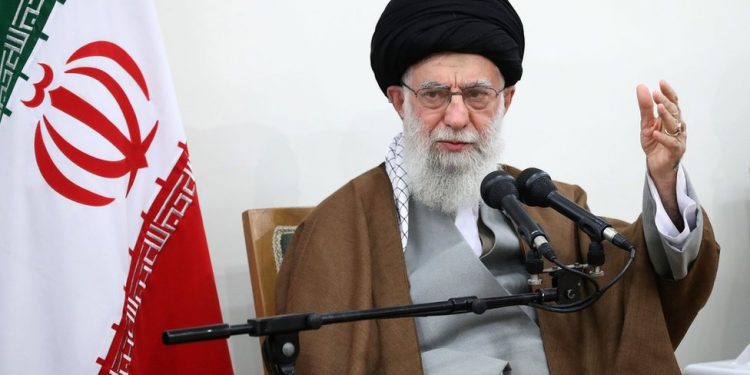Tehran: Iran’s UN Ambassador Amir Saeid Iravani wrote a letter to the heads of the United Nations and the Security Council Saturday calling for an emergency council meeting over the attack that killed Nasrallah.
“Using US-supplied thousand-pound bunker busters,” he wrote, Israel killed Nasrallah and Iranian Gen, Abbas Nilforushan, among others.
Iravani warned Israel not to attack any of its diplomatic or consular premises, or its representatives. “Iran will not hesitate to exercise its inherent rights under international law to take every measure in defence of its vital national and security interests,” he wrote.
Lebanon’s Hezbollah group Saturday confirmed that its leader and one of its founding members, Hassan Nasrallah, was killed in an Israeli airstrike in a southern suburb of Beirut.
The killing of the powerful militant group’s longtime leader sent shockwaves throughout Lebanon and the Middle East, where he has been a dominant political and military figure for more than three decades.
Iran’s supreme leader announced five days of public mourning and Ayatollah Ali Khamenei called Nasrallah “the flag-bearer of resistance” in the region.
Hundreds of protesters took to the streets of Tehran, waving Hezbollah flags and chanting “Death to Israel” and “Death to Netanyahu the murderer”.
Nasrallah, linked by Israel to numerous deadly attacks on Israeli and Jewish targets, has been on Israel’s kill list for decades. His assassination is by far the biggest and most consequential of Israel’s targeted killings in years, and significantly escalates the war in the Middle East. Hezbollah is backed by Iran, Israel’s chief regional rival.
The Israeli military said it carried out a precise airstrike Friday while Hezbollah leaders were meeting at their headquarters in Dahiyeh, south of Beirut.
Immediately after the confirmation from Hezbollah, people started firing in the air in Beirut and across Lebanon to mourn Nasrallah’s death.
In his first public remarks since the killing, Prime Minister Benjamin Netanyahu said Israel’s targeting of Nasrallah was “an essential condition to achieving the goals we set”.
“He wasn’t another terrorist. He was the terrorist,” Netanyahu said.
Netanyahu said Nasrallah’s killing would help bring displaced Israelis back to their homes in the north and would pressure Hamas to free Israeli hostages held in Gaza. But with the threat of retaliation high, he warned the coming days would bring “significant challenges” and warned Iran against trying to strike.
“There is no place in Iran or in the Middle East that Israel’s long arm cannot reach. And today you know how much that is true,” he said.
The Lebanese Health Ministry said six people were killed and 91 injured in the strikes Friday that levelled six apartment buildings. Ali Karki, the commander of Hezbollah’s Southern Front, and other commanders were also killed, the Israeli military said.
A statement from Hezbollah said Nasrallah — who led the group for more than three decades — “has joined his fellow martyrs.” The group vowed to “continue the holy war against the enemy and in support of Palestine”.
Hezbollah started firing rockets on Israel in support of Gaza on October 8, a day after Hamas militants launched an unprecedented attack on Israel, killing some 1,200 people and abducting another 250. Since then, the two sides have been engaged in escalating cross-border strikes.
Israel has vowed to step up pressure on Hezbollah until it halts its attacks that have displaced tens of thousands of Israelis from communities near the Lebanese border. The recent fighting has also displaced more than 200,000 Lebanese in the past week, according to the United Nations.
Earlier this month, thousands of explosives hidden in pagers and walkie-talkies used by Hezbollah detonated, killing dozens of people and maiming thousands, including many civilians. Israel is widely believed to be behind the attack. Israel has killed several other top Hezbollah commanders in Beirut, especially in the past two weeks, in addition to the attack that killed Nasrallah.
In Beirut’s southern suburbs, smoke rose and the streets were empty Saturday after the area was pummeled overnight by heavy Israeli airstrikes. Shelters were overflowing with displaced people. Many families slept in public squares, on beaches or in their cars. On the roads leading to the mountains above the capital, hundreds of people could be seen fleeing on foot, holding infants and whatever belongings they could carry.
The Palestinian militant group Hamas sent condolences to its ally, Hezbollah, and said “assassinations will only increase the resistance in Lebanon and Palestine in determination and resolve”.
Saturday morning, the Israeli military carried out more than 140 airstrikes in southern Beirut and eastern Lebanon’s Bekaa Valley, including targeting a storage facility for anti-ship missiles in Beirut suburb of Dahiyeh. Israel said the missiles were stored beneath civilian apartment buildings. Hezbollah launched dozens of projectiles across northern and central Israel and deep into the Israel-occupied West Bank, damaging some buildings in the northern town of Safed.
A total of 1,030 people — including 156 women and 87 children — have been killed in Israeli strikes in Lebanon in less than two weeks, the country’s health minister said Saturday.
PNN & Agencies






































